Alice Caroline Fisher was born in about 1843 in Colombo, Sri Lanka. She was the second born child of William Fisher and Sophia (nee Lambe). Her older brother Jack Fisher was later First Sea Lord in the British Navy (Lord Fisher of Kilverstone). Her father, William Fisher, was at the time in the Army however he bought himself out of his commitments to the army in 1844 when he was 33 years old.

William joined the coffee “rush” and started a coffee plantation in Ramboda, Central Sri Lanka called Wavendon. Alice would have spent much of her childhood there. The air was cool and clear and it was supposedly a heathy atmosphere. Her mother had three more children in the following years. Sadly two. of them died young and were buried at Wavendon. There is no record for the reason for their death. Her younger sister Lucy Ellen was the one who survived. Lucy was born in 1847. At around this time her elder brother Jack was sent off to boarding school in England.
I imagine that Alice’s childhood was quite tough. Things were not going well on the coffee estates and her mother was pregnant most of the time. Her father was a keen hunter so when not working he would probably have been involved in that.
When Alice was 9 or 10 she was also sent to school in England. Unfortunately this was after the 1851 census so it is hard to find which school she went to. It is possible she went to Coventry with Jack (her younger sister Lucy attended Lichfield grammar school with Francis Conrad, Arthur and Frederick). It is likely that like her older brother Jack, she would spend holidays with Lady Wilmot-Horton and family at Catton Hall in Derbyshire.
The next event that we know about in Alice’s life come’s from her younger brother Frederick Fisher who describes her return to Sri Lanka. He said that in 1860:

Alice would have been about 17 at this point. She married to Lindsay Harrison Daniell, a coffee planter like her father, at the end of that year on the 4th December in Kandy.
According to Frederick Fisher, Lindsay had an estate called Harrow near Ramboda, not too far from one of William’s earlier estates. It is also not far from Nuwara Eliya. He said that:


The Harrow estate is still active to this date. I am not sure that these building were there at the time that Lindsay owned it but they could be from that period. It is rather beautiful.


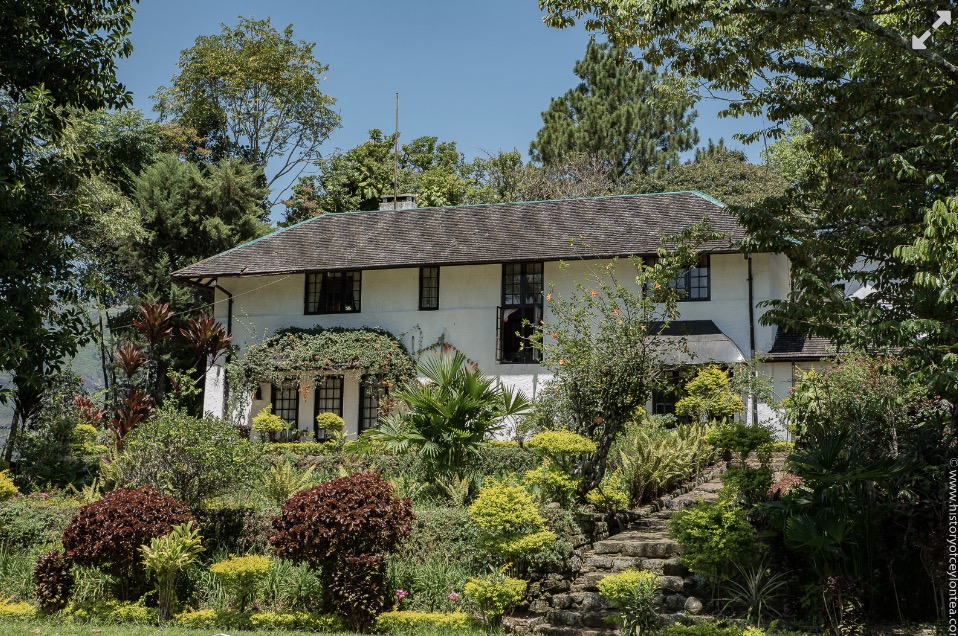
It seems that Alice took quite an active role in the lives of her younger brothers. Her father William Fisher described in a letter to a friend Peg how his youngest son Philip had gone to live with her (possibly for the same health reasons that Frederick described above).
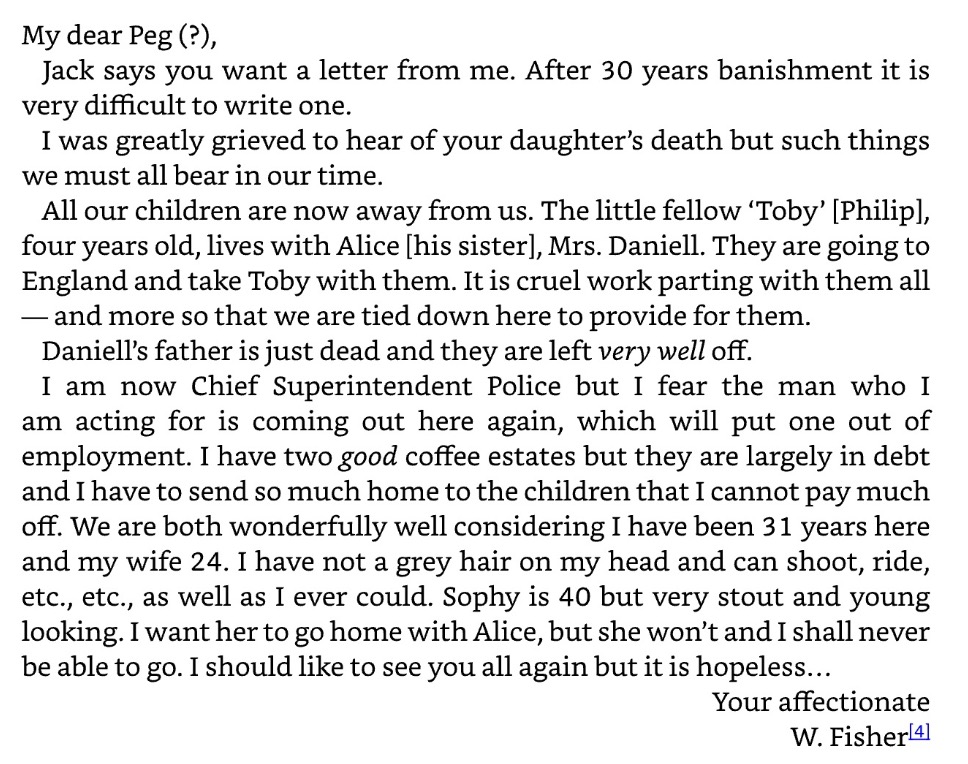
Alice’s father in law had just died and left him a considerable inheritance. By this time Alice had had three children and was pregnant with a fourth. They took the trip to England mentioned in the letter above and did take Philip along too so that he could start school.
This was the scene of the famous photograph taken with all 7 of the Fisher children. Alice is seated with her youngest daughter Georgy on her lap, by her side is her daughter Emma. Her son Murray is not in the photo. Her husband Lindsay is seated at her left. The couple both look so young. Alice is 22 by this point. Philip is the young boy sat between Lindsay and Alice. He was sent to school in Reading – Jack Fisher describes taking him there. Standing behind from right to left are Frederick, Francis Conrad, Lucy Ellen, Arthur and Jack. Jack is 25 in this photograph. It was taken in 1865 and was probably taken at Catton Hall.

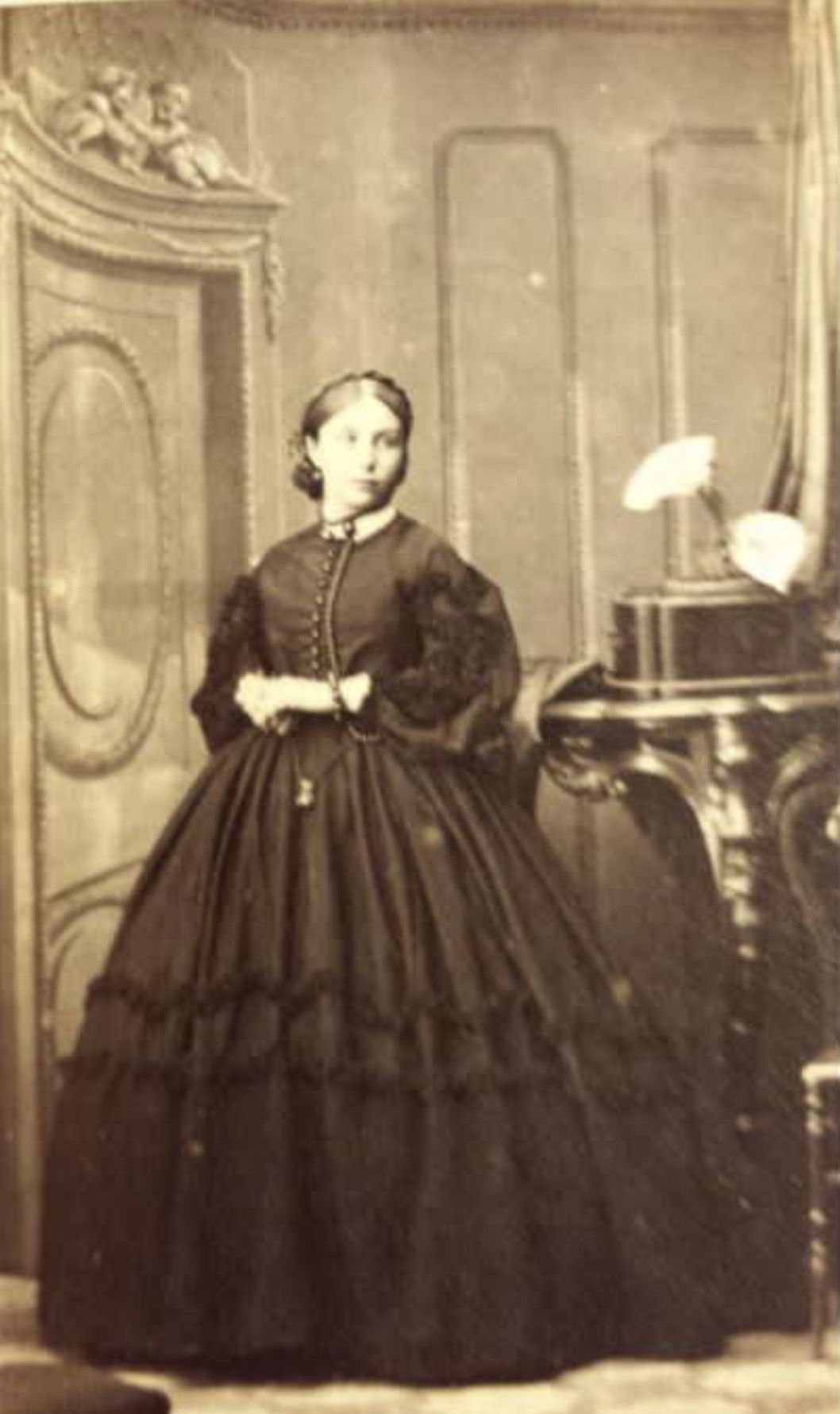
Alice, Lindsay and her three children headed back to Sri Lanka in 1866 bringing Lucy, Arthur and Francis Conrad with them. It must have been a wonderful reunion for her parents to have four of their children back home after quite a lengthy time apart from the the three younger ones. Francis Conrad, know as Frank, was 16 and angling for a position in the civil service.
By this point William Fisher was living in Kandy. He had been acting Superintendant of Police and was about to finally be promoted to the full role with a commensurate good salary. Things were finally turning up for William and Sophia. Then in the April of that year shortly after the children arrived home he fell off a horse and was kicked in the head. William died immediately.
It must have been a terrible shock for the whole family. He was 55.
The following August Francis Conrad Alice’s 16 year old brother gained a job in the Civil service.
But more tragedy was to beset the family in September. Alice had by this time just given birth to their fourth child Lucy.
An emotional letter from Lindsay Daniell to his mother best describes what happened next:
Riselawa
September 18th 1866
My own darling Mother
Now that I feel more composed and yet unable to talk or think of anything except my beloved and precious children – whom God has seen fit to take from me – I will commence a letter to you, and I will give you as far as I can an account of all that preceded that fearful day when the visitation fell upon us. Alice wrote to you the day before we left Colombo – I had business in the Fort to attend to which kept me out almost the whole day – so was unable to write – our darling children had all been suffering from boils and Doctor Charsley strongly recommended our taking them up to the hills with us, on our own account as well as on theirs – Mr. Sheriff with whom we were to stay, being only to glad to see them, we of course did not hesitate to follow the Doctor’s advice.
The journey to Kandy is only memorable to us now as another instance of the sweet cheerful disposition of our darlings, for though they were taken from their beds at 5 a.m. and did not arrive in Kandy till 4 o’clock pm there was not a cry or complaint from one of them – Even the coachman told the nurse he had never seen such good children. On arriving at Kandy we first went to an hotel, but finding that we should have to remain for more than a week (owing to Mr. Sheriff being obliged to remain for a trial) we accepted the offer made by some friends Mr & Mrs Leake for Alice and me to stay at their house and for the children to occupy an empty house next door which was throughly furnished and in fact just as our friends the Harrisons left it when they went to England in July.
On first arriving we had difficulty in getting good milk for baby and she got an attack of Diarrhoea which produced or was the result of thrush from which she is just recovering- Mrs Leake has three children and used constantly to say to us “I wish I could make Mary” (her eldest girl) “as obedient and good as Emma”. We left Kandy, all, except baby in perfect health and the other children greatly improved in looks a well, on Saturday the 8th, and after a most tedious and tiring journey at about 2 o’clock on that day week my beautiful and good children were laid in one grave. So sudden and great a calamity surely was never inflicted before!
Up to Thursday the 13th we all picked up strength and health most rapidly in this cool climate tho’ the weather was very wet – on Thursday morning a Mrs. Corbet brought to Mr Sheriff’s a bundle of vegetables amongst which was something that looked exactly like a young rhubarb and was supposed to be meant for a tart or pudding, this was made for our dinner and was to have been sent in cold, but my Emmie after a hearty dinner of meat and curry asked for pudding and this being the only sweet ready, it was brought in hot – she ate nearly a plate full and my Georgie only about two teaspoons full when Fanny saw her face she did not like it – She (F) tested and said “Oh! how nasty how can you eat it Miss Emma” Emmie then said she did not like it much and did not eat any more.
Sept 20th
….. constantly with her and Mr Sheriff, Mr. Leboniere and myself take turns of sitting with her – and now to resume my sad tale.- After her dinner Emmie came to me with her own sweet laugh saying “Oh Papa dear, I have eaten so much dinner” and evidently I think feeling uncomfortable – However the afternoon being wet, my three darlings played together in the verandah almost more nicely than they had ever done before – I watched them for hours. Emmie was one Mr Browne (our fellow passenger), Murray was the other and Georgy was Peachy (our native boy of whom they were very fond and warmly returned their affection). To hear the darlings call “boy” and to see Georgie doing what they wanted answering when they called with her sweet voice “Here” was a you may imagine a sight I loved to see, and every event of the afternoon is branded into my memory.
At 8.30 they were tired out and I took them into their bedroom, after eating a hearty tea, and they said their last prayers to me. Oh God! that I should live to say so! For some days previously they had been in the habit of all kneeling down together and saying the Lord’s Prayer, at least Emma and Murray, and Georgie saying the last word of each paragraph – they then (the two former) each said their own prayer and Georgie said “Pray God bless pa and Ma make good girl” the others kneeling all the time – Emma and Murray then each said their hymn and Georgie stood by while they did so – at 7.15 about they came into the drawing room hand in hand to say good night and kissed Mr. Sheriff and us too – I hugged Emmie a little more than the others and dear Alice said “Come Papa fair play to all”. They then walked out in the same order (by my wish) as they had come in – they looked such lovable darlings.
I never saw Emmie and Georgie well after that and on the second evening afterwards they were laid in the grave side by side – my sweet Emmie in the centre, my darling Georgie on her right, and my noble boy on her left – which was the order in which they had walked out of the room on Thursday night as I have told you. They went to bed quietly and well – Emmie and baby in Nurse’s room – Murray and Georgie in Fanny’s. At eleven o’clock Georgie called Fanny but of course nothing particular was thought of it – and Fanny took Georgie into her bed, but she was disturbed again an hour afterwards – at 12 o’clock Emma called Nurse but seemed in such good spirits and apart from being disturbed at an unusual time nothing was thought of it – at 3 o’clock the diarrhoea was worse and at 4 o’clock while still no alarming symptoms had appeared I was called – i put on my dressing gown and told Alice to tell Emma the doctor was coming. I carried her into my bed but she was very restless, and although fondling me as she always used to do could not remain there – she asked frequently for our kind friend Dr. Charsley but was as patient as ever – at about 5 o’clock we laid her on a sofa in our room before a fire as her hands, feet and lips were cold and I felt her pulse.
Oh the shock that thrilled through me when I felt none whatever – we then found the sofa she was on was saturated with colourless fluid, and it was not till I had sent off expresses to our friend Sabonadiere who has had a great deal of experience with her own children, for a native doctor in Passellawa and for an English doctor at Gampola 15 miles off that we discovered that what is called “rice water” purging was going on – this alarmed us so much that we checked it by an injection and gave her a hot bath and stimulants for a few minutes my darling slightly revived but at about 7 o’clock became light headed – at 8 o’clock Mr Sabonadiere arrived and gave her chlorodyne but without any visible effect and at about 8.30 am she became quite delerious and screamed for a short time as if in pain – at 9 o’clock she became collapsed and just then the native doctor William (educated by a very clever American doctor and missionary) put plaster on the soles of her feet and her stomach – he put her feet into boiling water, gave her brandy and rubbed her head and hands with ginger.
It was all of no avail and my dear friend Sheriff told me, I must give up hope, to say that I and my darling Alice felt crushed only faintly expresses our heartbroken sorrow – We knelt by her, she was in Nurses arms and at 9.30 her head was raised to try and get a little brandy down her throat and we heard it rattle, so I laid her head down again and my darling angel child whom.I loved as perhaps nothing on earth should be loved fell asleep in Jesus – I thanked God we were able even in the moment to say “His will be done” – I know I shall meet her blessed spirit again. I pray without ceasing for that meeting and a merciful God will grant it – I carried her to the bed where her remains were laid out – and for a time could think of nothing else.
Her darling beautiful face had greatly altered during the previous two hours, quickly resumed its usual appearance and it was only when I thought of my sweet little Georgie that I could tear myself away from her – I am afraid I am writing too much of myself but my poor Alice was with me always and we truly sorrowed as one person.
During the last hours of my Emma’s illness Georgie had been lying much more comfortably she had purging and vomiting (which E had violently) of the same character and soon after her darling sister – the latter had at the last been blind though with her eyes open and we now discovered that Georgie was teh same – and yet she laid quietly, and sucked her thumb and was vividly sensible she detected our footsteps and when we left her bedside called out for us “Papa, Mama, Mama” and more often still “Fa” which she meant for Fanny who had been tending her.
The doctor had been constantly looking at her and had been giving her nourishment and about 11 o’clock her pulse returned and the doctor had great hopes of her recovery – up to this time tho’ my Emma had gone through all the stages of malignant Asiatic Cholera yet we only thought of her as poisoned which she undoubtedly was tho’ the sad sequel showed that the poison had actually produced cholera – at about 11 o’clock dear Georgie seemed to be greatly exhausted and stimulants were given to her – also by the doctor a large injection after waiting half an hour the injection was pronounced a failure for not even what was injected came from her and she soon after collapsed and was evidently sinking – she too was taken in her dear Nurse’s arms and we again knelt by her side to receive her last breath – she fell asleep even more quietly than my Emma not a struggle of any kind, but a slight gasping for breath, and then slower and slower till at last a deeper one came and no more.
I felt turned to stone and as if no further sorrow could affect one – i carried my bright blue eyed caressing darling to be laid beside the sister she loved so well, and more peaceful beautiful sight mortal eyes never beheld than those two together – In an hour of two the English doctor Dr Thwaites arrived – We were very anxious about little Lucy who had been suffering for some days from diarrhoea and was very weak – my darling boy was up to this time apparently quite well – he did not know of his loss poor dear, but had been continually asking for his sisters not having slept as usual in the morning – Alice put him to sleep on a sofa in the drawing room and he slept quietly and well. Dr Thwaites recommended our taking both children away from Sheriffs at once and Sabonadiere offered his house immediately – I could not leave the bodies of my darlings, remained where I was, just as all were ready for a start Murray who had awoke flushed was a little sick – Dr. T. said it was nothing of consequence and as he had not eaten any of the poison we were not so very greatly alarmed – however he had been in the same room with Georgie when the….
… Baby started with the doctor and reached Sabonadiere’s just before dark. During the whole journey of three miles my poor boy was dreadfully sick on arriving however he seemed in good spirits and stood in the verandah while his bed and supper were got ready. By 10 o’clock pm the purging had commenced and Dr. T. directly told Sabonadiere he had little hope – i was lying down at Sheriff’s and trying to sleep when I heard a coolie calling the servants. I twas a letter saying that all hope of my darlings recovery was past – this was about 2.30 a.m.
I started immediately for Sabonadiere’s expecting to find my dear boy gone, but thank God I was allowed the comfort of soothing his last hours. We had at time more hope of him than of either of his two dear sisters – He had passed thro’ the stage of collapse and had taken a considerable quantity of nourishment and had never been quite insensible tho’ blind – Dear little man he called us all and took his thumb in his mouth in his old way when we asked him to – but he was distressingly weak and his eyes looked quite sunk into his head – shortly before 9 o’clock the reaction or the return of circulation set in violently – we applied cold lotions to his head and a mustard plaster to the back of his neck – but with no avail – the convulsions became stronger until he began to sink and in a few minutes my darling brave intelligent boy had gone too !
We could not cry with a load of affliction even grief seemed a mockery and indeed a merciful God must have a great purpose to work out, by such fearfully afflicting means. In less than 24 hours, three children such as few parents were ever blessed with snatched away for all time but no thank God for Eternity – We can now think and speak of our loved ones with calmness and even cheerfulness, but I feel as if I was entering a new phase of life, with a cloud of sorrow over hanging me which can never, and I do not wish to, be entirely removed. There is nothing more painful in our memory of our precious darlings, they were always loved and cherished and happy. That such happiness as they enjoyed could be lasting on earth was of course impossible, where they now are it is certain – I pray soon to be able to say i would not have them back if I could – surely they are welcomed into our Saviour’s fold as most precious lambs and … … ours will be accorded them.
At about 10 o’clock on Friday evening Fanny was seized with vomiting, we had none of us touched food all day in truth we had never even thought of it – when I arrived at Sabondiere’s at about 4 o’clock in the morning she was very ill with cholera and soon after my noble boy died Dr. Thwaites gave her up also – we sent for the clergyman of the Parish Mr MacKenzie (who had called the evening before but Alice could not see him) to administer the Holy Sacrament to her – He came at about 12 o’clock and Alice, Nurse and I communicated with her – she showed what a truly good and religious girl she is. She looked forward to meeting her (darling Mis Georgie) and was only pained for her father and mother – she expressed true repentance of her sins, but had confidence in her Saviour and as she said over and over again did not fear to die.
At 4.30 I started with Sabonadiere to follow my darlings to their grave, just before we left Dr Williams hearing of Fanny’s danger – He suggested branding her toes with red hot iron, the latter ridiculed the suggestion and made me very angry by doing so – mind you she was then quite collapsed, pulseless and all but dead body, she jumped up in bed, shrieked loudly and her pulse at once returned from that hour she has got slowly better and is now quite out of danger for four days after Dr Williams and two nurse, a native and a European, never left her – Under God she owes her life to the … always in or close by the room, night or day in case of assistance being wanted.
To return to my darlings’ funeral they were of course all buried together – two beautiful girls taken from Sheriff’s and my dear boy from Sabonadiere’s. They were laid in coffins covered with white cloth and the coffins filled up with flowers – plain sheets were thrown over them as palls and not a spot of black was to be seen. They were carried to their graves by seven old friends of mine and laid in them by Sheriff’s own children - Mr McKenzie quite broke down in the Service – who with children of his own could have helped doing so? Pussallawa churchyard is a most lovely spot and their grave is close by the entrance of the Church.

They lie thus:
The Church entrance being just where I am writing, in another letter I will write what I wished done about a white cross and a railing, they cannot be got here – I wish this letter when you and the girls have seen it, sent to Georgie and from her to Jack – I am so tired being far from well I must now conclude. It is now the 26th and I started on the 18th – I am feeling so weak and poorly again.
It has been very trying writing so full an account of a sorrow that I thought must have killed us both. I know dearest Mother, and sisters, Richard and Jack how precious my now sainted darlings were to you all – I hope it may be broken to you in a way that may shock you as little as possible.
God bless and comfort you.
Dearest Alice and Lucy who to our great comfort is staying with us at Sabonadiere’s unite with me in fondest love to you all.
Believe me my darling Mother and your loving and sorrowing son
L H Daniell
Tell Jessie and Emma, little Georgie and Lindsay and her other cousins that my darling Emma never forgot any of them or indeed anyone whom she had once known and loved. She is gone and the light of my life with her.

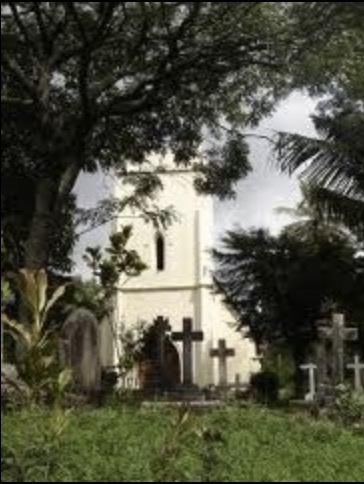
The transcripts
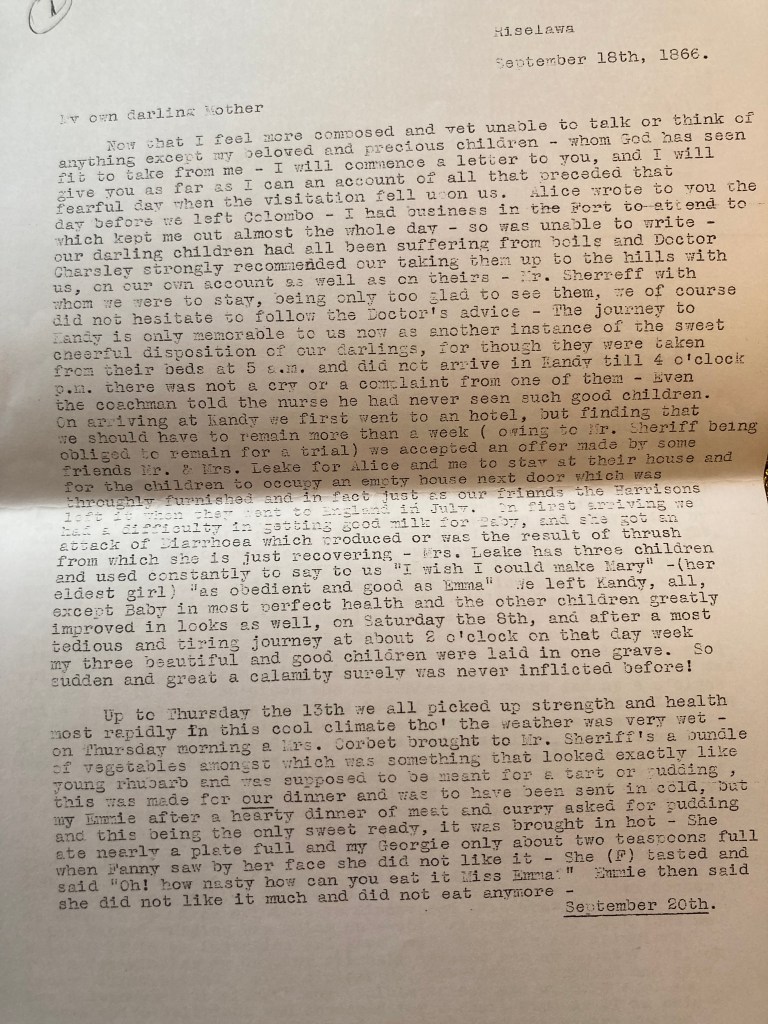
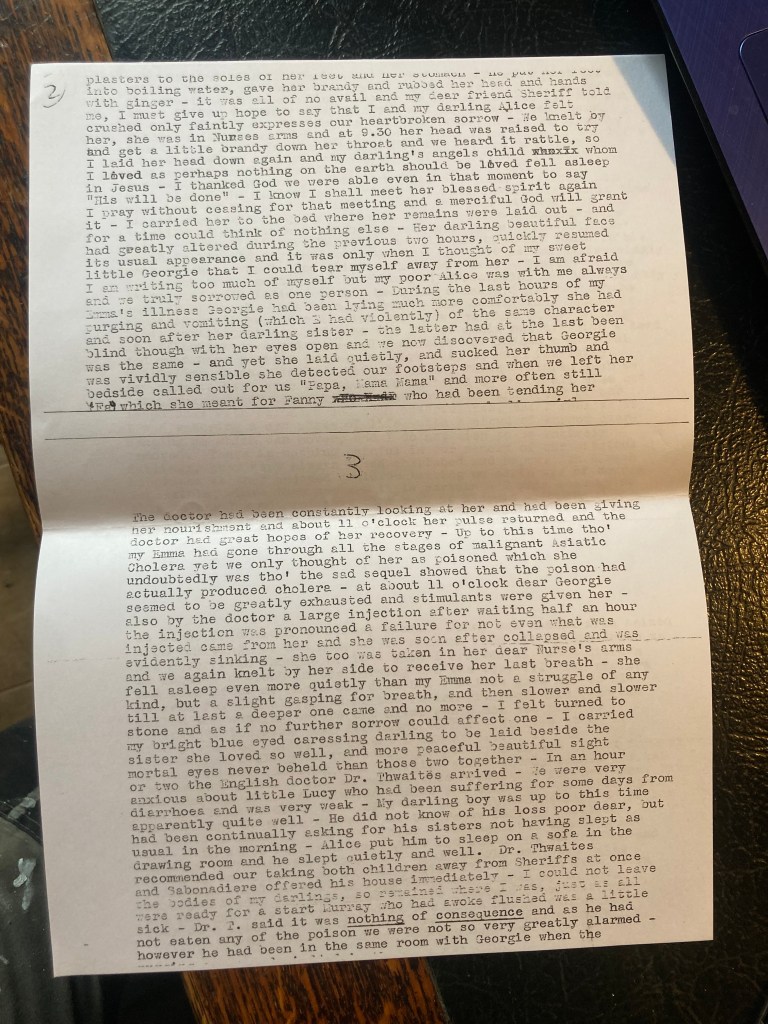
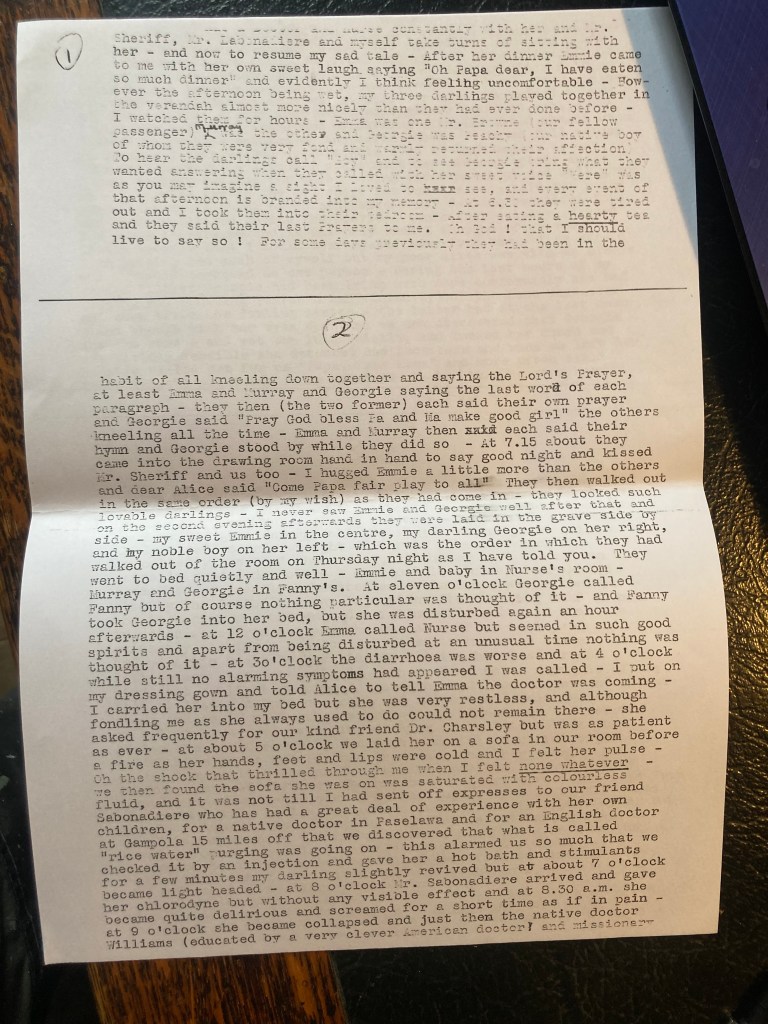
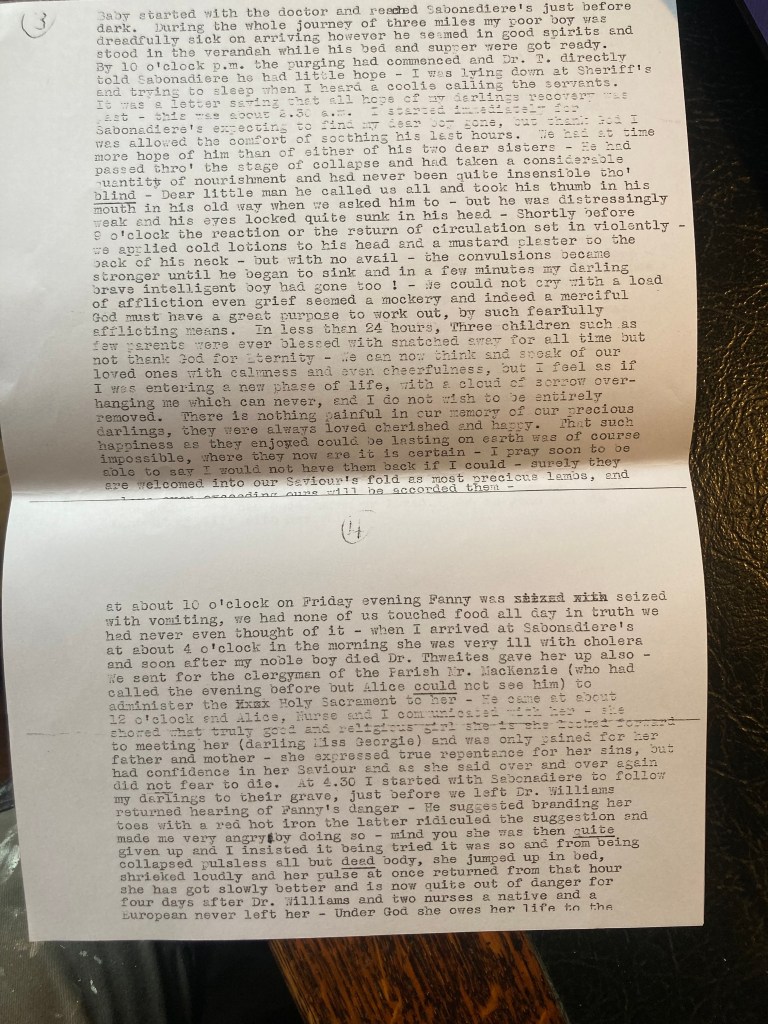
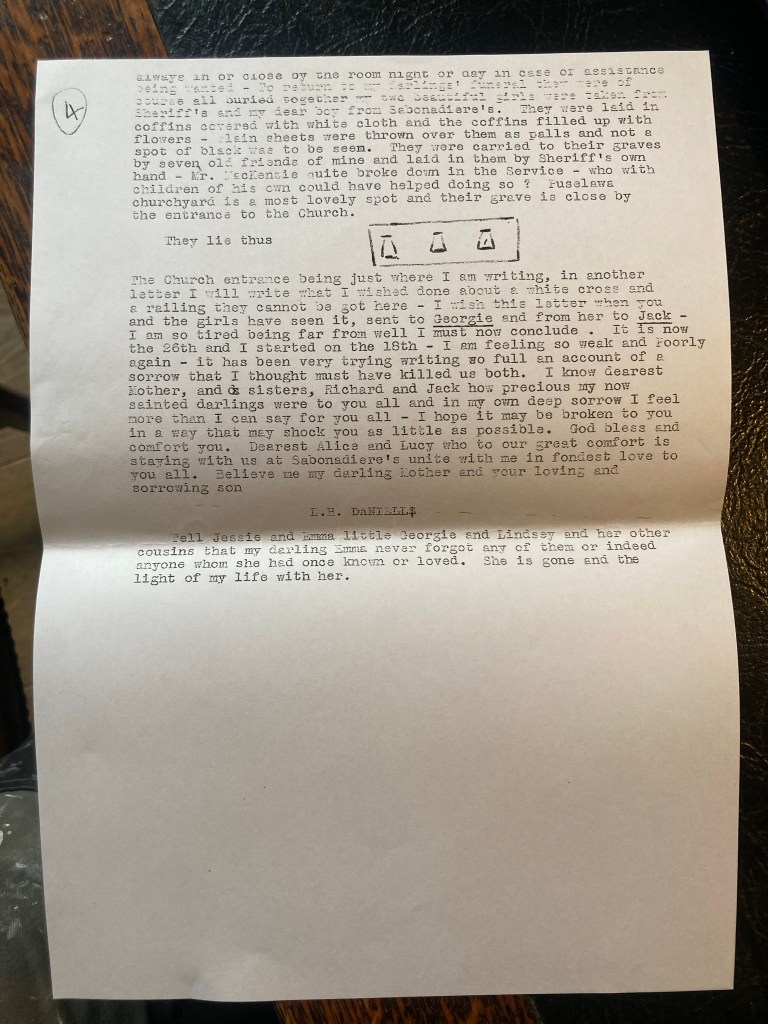
To summarise the three children died of cholera over the course of two days and were buried in the Holy Trinty cemetery at Pussellawa.
A description of the graves is given in a “List of inscriptions on tombstones and monuments in Ceylon, of historical or local interest, with an obituary of persons uncommemorated” by John Penry Lewis.
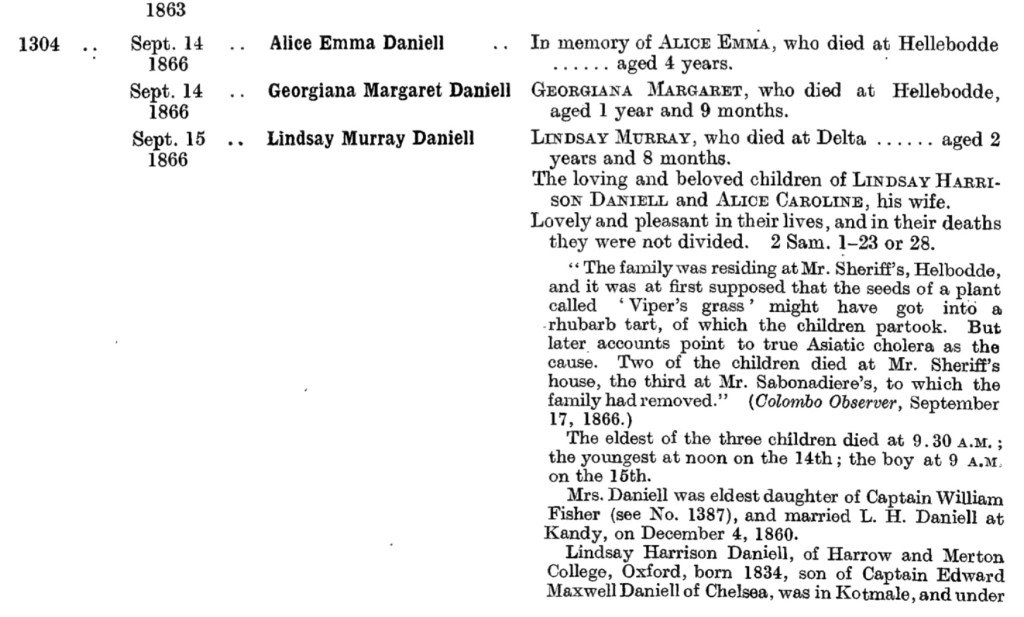

Jan Morris in her biography of Jack Fisher describes coming across the graves in Pussellawa. She describes the area where the children died thus:


The couple returned to Europe and had another two daughters Frances and Alice. Frances born in France and Alice in Italy. Lindsay went on to take holy orders and became a vicar. It seems likely that the death of his three children was a factor in this decision. I imagine he was quite a changed man after that experience.
Sadly Reverand Lindsay Harrison Daniell was to die in 1872. He was 38.
I found this photograph which is a calling card by John Jabez Edwin Mayall in the national gallery of Scotland. It is entitled “Alice Daniell”.
It looks like a woman in mourning although it does not look very like the twenty two year old photos we have I think there is a chance that it is her in her early thirties, a somewhat tragic figure.
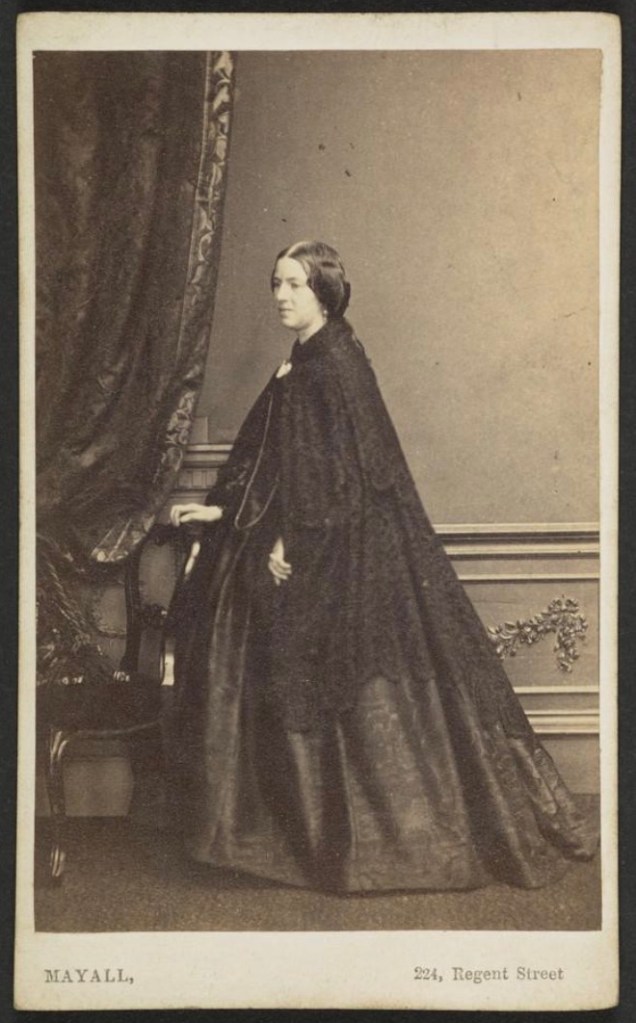
Alice’s aunt Frances had married Charles Sargeaunt in Wavendon, Bucks in 1837. They moved to Rushton in Northamptonshire and had 7 children. The second son was called Frederic. Much to the disapproval of Alice’s brother Jack, Frederic who was a naval officer, married his cousin the widowed Alice in 1875.
Jan Morris researched Jack Fishers response and says:

Ruddock Finlay Mckay in his book “Fisher of Kilverstone” describes the fall out like this:
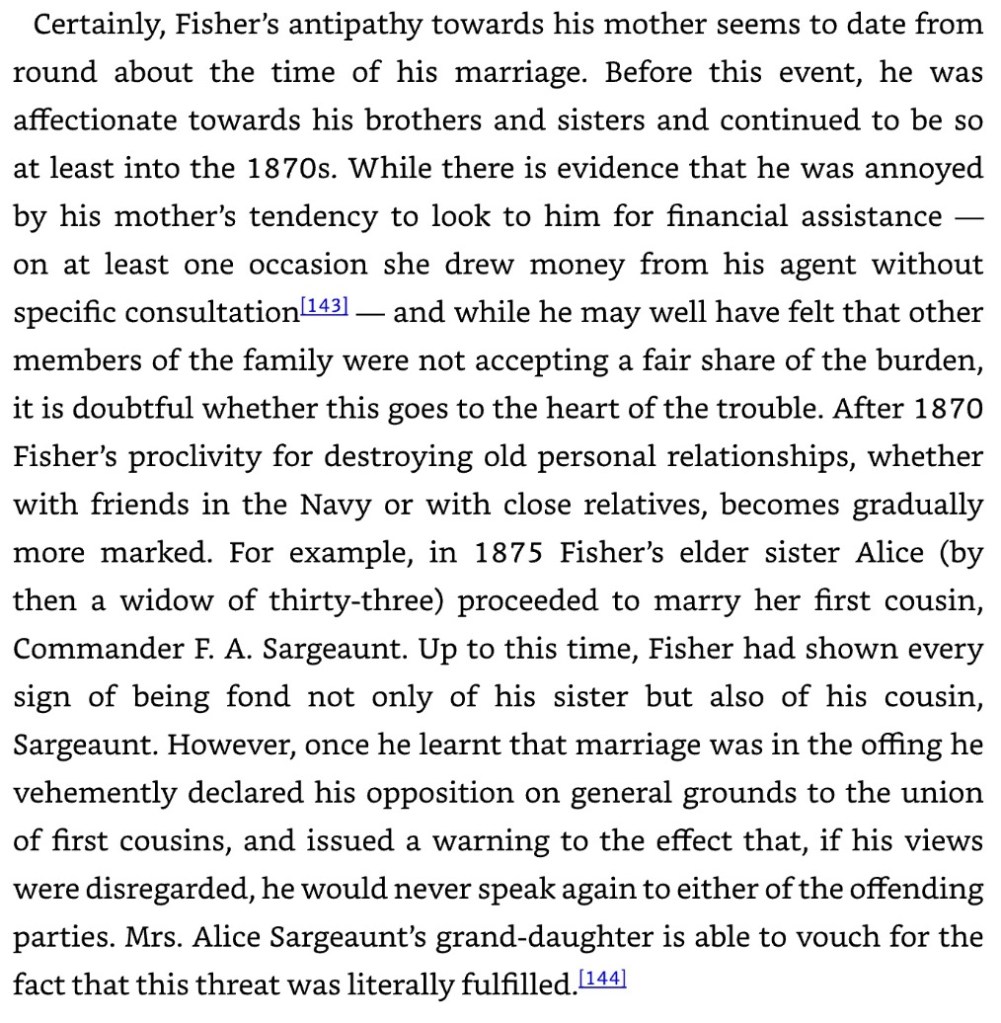
The couple moved to Kent and proceeded to have six more children. They later lived in Scotland and York. Of the Daniell children I have traced Frances and Alice. I have yet to find out what happened to baby Lucy.
However her life continued to be scarred by death.
In 1880 Alice’s 22 year old brother Philip was lost with all the crew of the Atalanta. Jack Fisher was involved in the search for the ship but no-one was found.
In 1883 her brother Arthur died aged 35 in Sri Lanka. His widow took their four children to Australia.
In 1894 her sister Lucy was lost at sea on the ship Numidian on her way to Canada.
In 1895 she lost her mother Sophia who was now living in Kensington. She died of complications of heart disease and cancer of the stomach. Sadly also her daughter Frances Foot (nee Daniell) who was married and only 27 died in Ireland that same year.
At around this time Alice and Frederic moved to Bedford. Frederic died there in 1898 at the relatively young age of 57. Alice lived on as a widow in Bedford for another 17 years.
In 1901 her brother Francis Conrad died by suicide in Sri Lanka. His widow Florence Fisher (nee Fuller) returned to the UK. I hope the two widows were support for each other – although his wife Florence would never have been in Sri Lanka at the same time as Alice. Florence did move to Bedford herself so it seems likely that the two were in touch. In fact it could even have been the reason she chose to move there.
This meant that only Alice, Jack and Frederick were left of the 11 siblings. I hope Alice and Frederick were in touch with each other. And that Florences children met their Sargeaunt cousins (who were all a bit older than them).
Sadly I now know that Arthurs children who were in Australia did not get to know their cousins. Their mother died 18 months after their father died and they were brought up by a step-parent with no contact with the wider family.
Alice certainly lived a long and varied life and ultimately she triumphed through all that adversity living to 72. Her son Bertram Seargeaunt was with her when she died at 45 St Michaels Road, St Peter, Bedford.
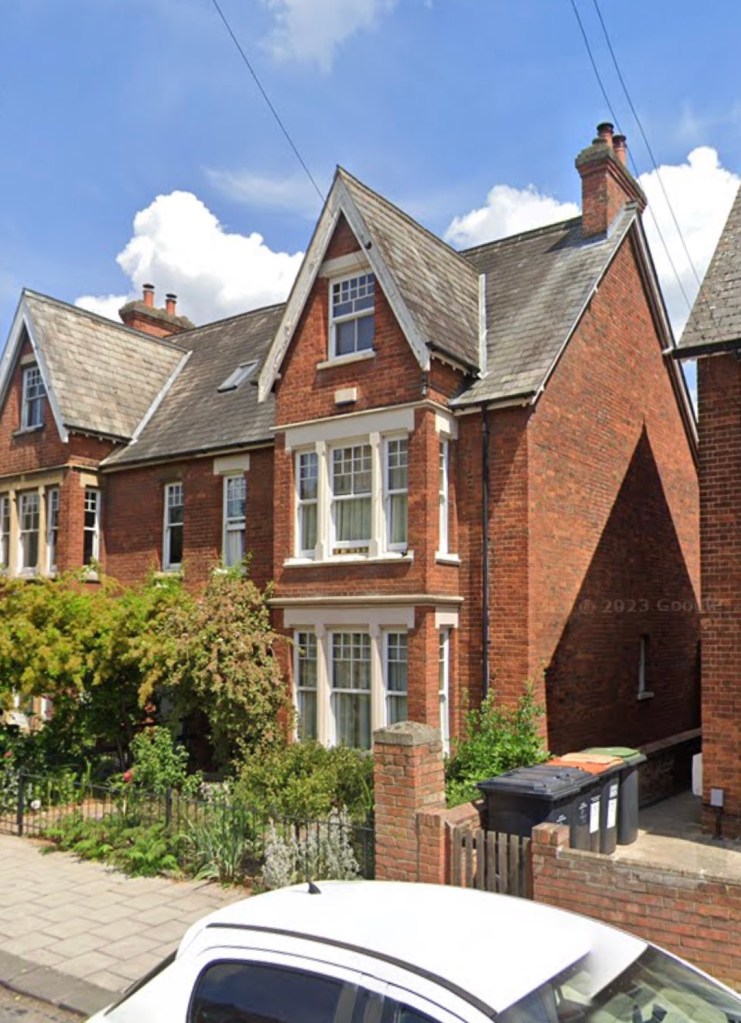

Alice had many descendants. One of her daughter Frances grandchildren was Michael Richard Daniell Foot, CBE, TD (14 December 1919 – 18 February 2012). Known as M. R. D. Foot, he was a British military historian and former British Army intelligence officer and special operations operative during the Second World War.
As the letter itself says no-one who is a parent of children can fail to be affected by this story. For me it took me back to hours sat by my own child’s bed in an intensive care unit with the doctors couching the words as to whether my child would live or not. We had the benefit of modern medicine, adequate pain relief to bring the fevers down and full hospital care. My child survived and yet those moments still live with me 20 years later. How very hard it must have been for this couple to navigate the decision making on those two tragic evenings…
Here is the tree for the people involved as far as I have it to date:

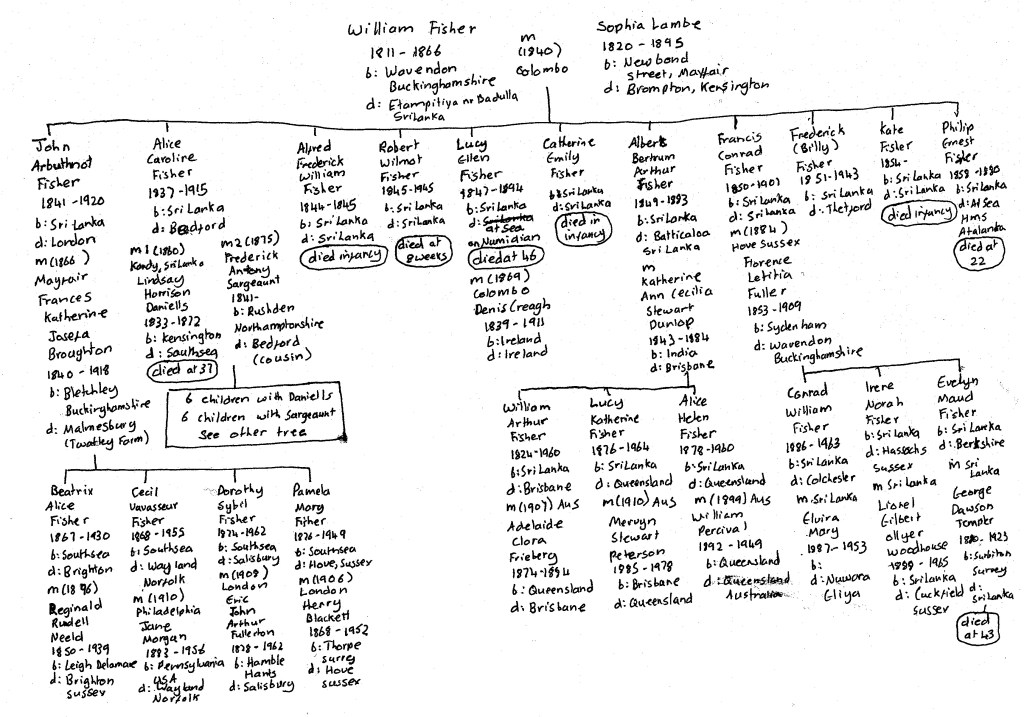
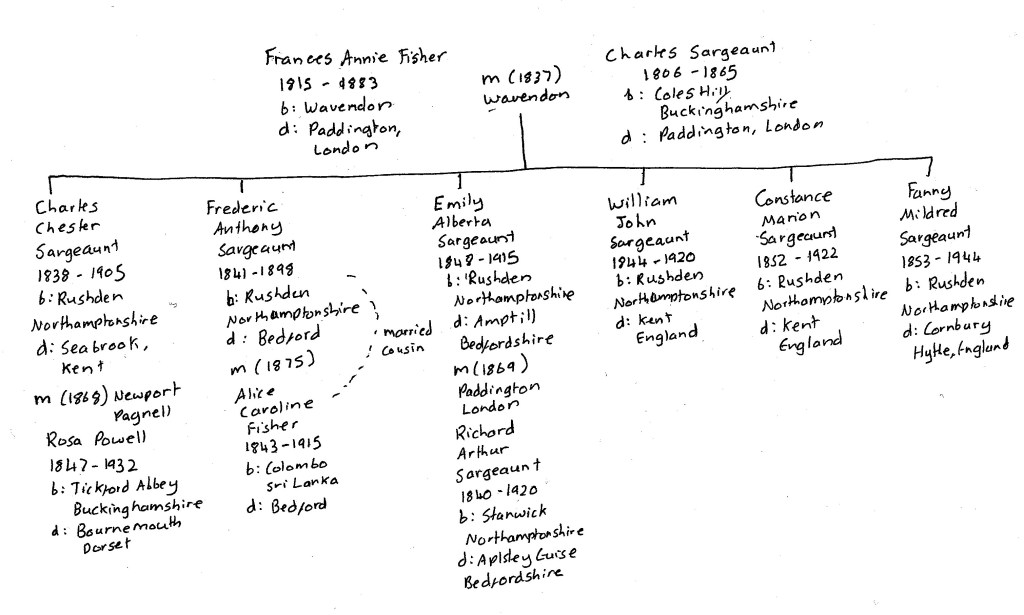

Thanks to Nick Chambers a descendent of Alice Fisher for sharing this very emotional letter with us. It brings the story to life and allows us to draw parallels with lived experience in a very realistic way.





 View Posts Index
View Posts Index